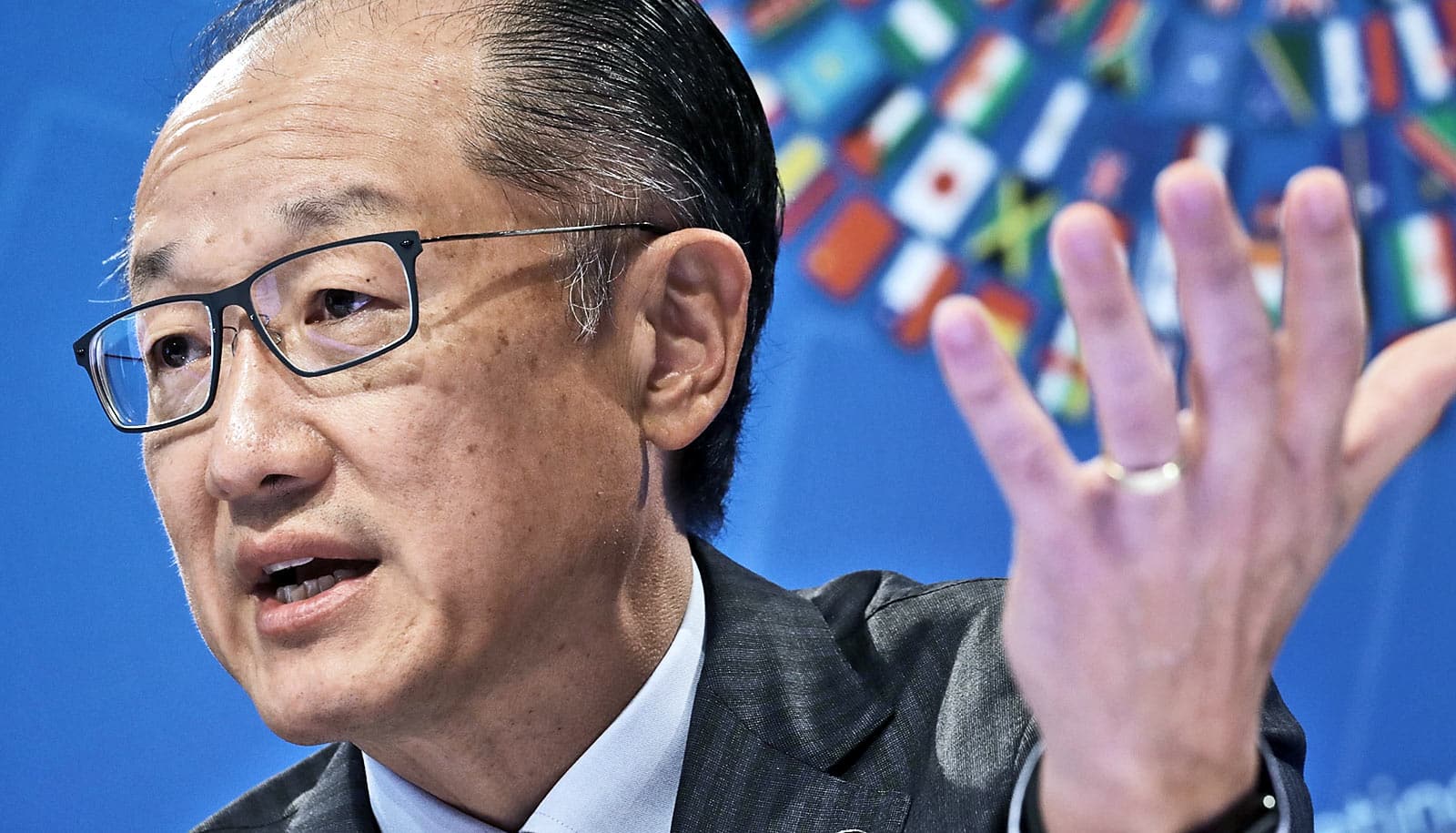New research focuses on the influence multinational corporations have over the World Bank.
The World Bank, established at the Bretton Woods Conference in 1944, was originally founded to rebuild Western Europe after the devastation of the Second World War. Later in the 1970s, it shifted its focus to alleviating poverty worldwide..
As he explains in a recent University of Rochester Quadcast, Randy Stone, a professor of political science at the University of Rochester, has been working on a series of studies about the influence of multinational corporations over multilateral institutions. Recently, he and Rabia Malik, a post-doctoral researcher at New York University Abu Dhabi, turned their attention to the World Bank.
He and Malik made a series of discoveries that they—and World Bank staffers they spoke to—found surprising. The two combed through thousands of pages of World Bank project reports and evaluations—4,206 projects covering the time period from 1994 to 2013.
Corporate influence
First, contemporary models of foreign direct investment assume large multinationals are better equipped to undertake major projects, because they are more productive than smaller firms and they control intangible assets, such as intellectual property. The idea behind using them as World Bank contractors is that their business acumen, combined with their know-how and technology, will make projects more efficient.
But, that’s not the case, the researchers conclude.
To make sure that projects achieve their goals, the World Bank adopted a rigorous process of evaluation. At any point, failure to meet performance milestones can result in the suspension of loan disbursements.
“And that’s where it sometimes runs into a little trouble,” Stone says.
Not only did the researchers find “no evidence that multinational corporations’ involvement as contractors improves the performance of World Bank projects,” they discovered instead that the involvement of multinationals led to better evaluations, in spite of the actual performance indicators.
“I’ve talked to a number of people at the World Bank about this and many of them are surprised by our findings,” says Stone. Most professional staff at the bank are economists, and Stone says he and Malik got plenty of questions from them asking if their study controlled for one or another factor. Each time, Stone says, his answer has been “yes.”
Second, when the researchers looked more closely at the firms with wide divergences between performance and evaluation, they uncovered a second key finding: the divergence was strongly correlated with American and Japanese firms, but not German, French, or British ones.
“You might think, well, multinational corporations are multinational corporations,” says Stone. But instead, the corporate influence both in loan disbursements and evaluations was concentrated among firms headquartered in the United States and Japan, which, it turns out, are also the largest shareholders in the World Bank.
Malik says she was “definitely surprised by how robust our findings were, especially compared to a lot of other factors we considered as alternative explanations.”
Third, Stone and Malik found that project performance is tied directly to World Bank staffers’ job evaluations and their career paths, creating an incentive for project managers to make outcomes appear rosier than they really are.
How they do it
In the American case, at least, the researchers surmise it takes place in the interaction among a variety of parties including bank staff, members of Congress, and federal agency personnel.
Stone is careful to admit they didn’t find the ultimate smoking gun.
“We don’t have an interview with somebody in the World Bank who says, ‘Well, I did this because I was contacted by the US Treasury’,” he says. But after ruling out other possible explanations, the researchers hypothesize that the undue influence occurs like this, according to Stone:
“There’s a multinational corporation, which presumably has lobbied its congressman, and the congressman has presumably contacted—or probably a congressman’s aide has contacted—somebody in the US Treasury, which oversees the World Bank’s US executive director, who sits on the board of the World Bank. Somebody in the US executive director’s office contacts someone in the appropriate department and says, ‘Well, this is a project we’d kind of like to see go through.’
“No one along the way knows how important it was to the multinational, how important it was to the congressman, how important it was to the US Treasury, but it sounds kind of ominous. You don’t want to get in trouble with a congressman, or the US Treasury, right? So, everybody goes along.
“There’s incentive to disburse. Everybody in the office knows this is a project we’re supposed to disburse, so we’d better give it a pretty good evaluation, because we have to justify the disbursement rate.”
Stone did make a Freedom of Information Act (FOIA) request to obtain correspondence between the Treasury and congressional offices—about two years ago. “But I never heard back,” he says.
How to fix things
For starters, Stone says, the United States is too powerful in the international system and wields too much influence over international organizations. Money, he argues, plays too large a role in American politics.
Put together, it becomes very difficult for international organizations to behave in an unbiased way and to function in the way their founders intended them to.
The most likely start for a fix would be to reform the influence of money on politics in the United States, which is “a tall order,” concedes Stone.
3 ways corporations use NGOs to influence lawmakers
So, the best way forward may be just to keep shining a bright light.
“If you can’t reform the campaign finance laws, and you can’t keep the United States in a box—because it is, after all, the most powerful country in the world—then revealing what’s going on is probably the best antidote to these kinds of patterns of cozy politics,” Stone says.
The researchers report their findings in the Journal of Politics.
Source: University of Rochester



